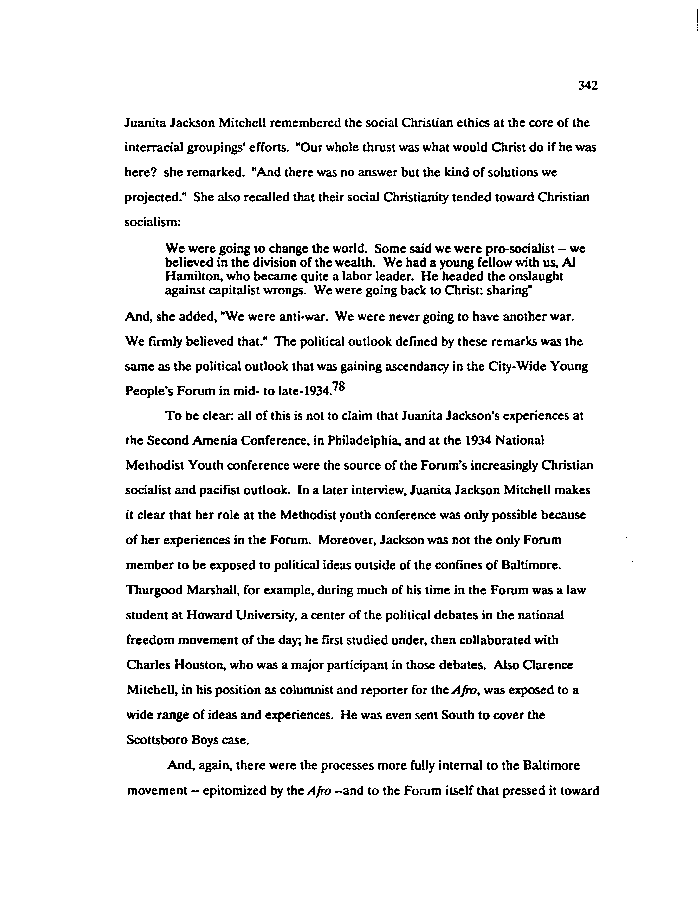|
342
Juanita Jackson Mitchell remembered the social Christian ethics at the core of the
interracial groupings' efforts. "Our whole thrust was what would Christ do if he was
here? she remarked. "And there was no answer but the kind of solutions we
projected." She also recalled that their social Christianity tended toward Christian
socialism:
We were going to change the world. Some said we were pro-socialist - we
believed in the division of the wealth. We had a young fellow with us, Al
Hamilton, who became quite a labor leader. He headed the onslaught
against capitalist wrongs. We were going back to Christ: sharing"
And, she added, "We were anti-war. We were never going to have another war.
We firmly believed that." The political outlook defined by these remarks was the
same as the political outlook that was gaining ascendancy in the City-Wide Young
People's Forum in mid- to late-1934.78
To be clear: all of this is not to claim that Juanita Jackson's experiences at
the Second Amenia Conference, in Philadelphia, and at the 1934 National
Methodist Youth conference were the source of the Forum's increasingly Christian
socialist and pacifist outlook. In a later interview, Juanita Jackson Mitchell makes
it clear that her role at the Methodist youth conference was only possible because
of her experiences in the Forum. Moreover, Jackson was not the only Forum
member to be exposed to political ideas outside of the confines of Baltimore.
Thurgood Marshall, for example, during much of his time in the Forum was a law
student at Howard University, a center of the political debates in the national
freedom movement of the day; he first studied under, then collaborated with
Charles Houston, who was a major participant in those debates. Also Clarence
Mitchell, in his position as columnist and reporter for the Afro, was exposed to a
wide range of ideas and experiences. He was even sent South to cover the
Scottsboro Boys case.
And, again, there were the processes more fully internal to the Baltimore
movement — epitomized by the Afro -and to the Forum itself that pressed it toward
|

